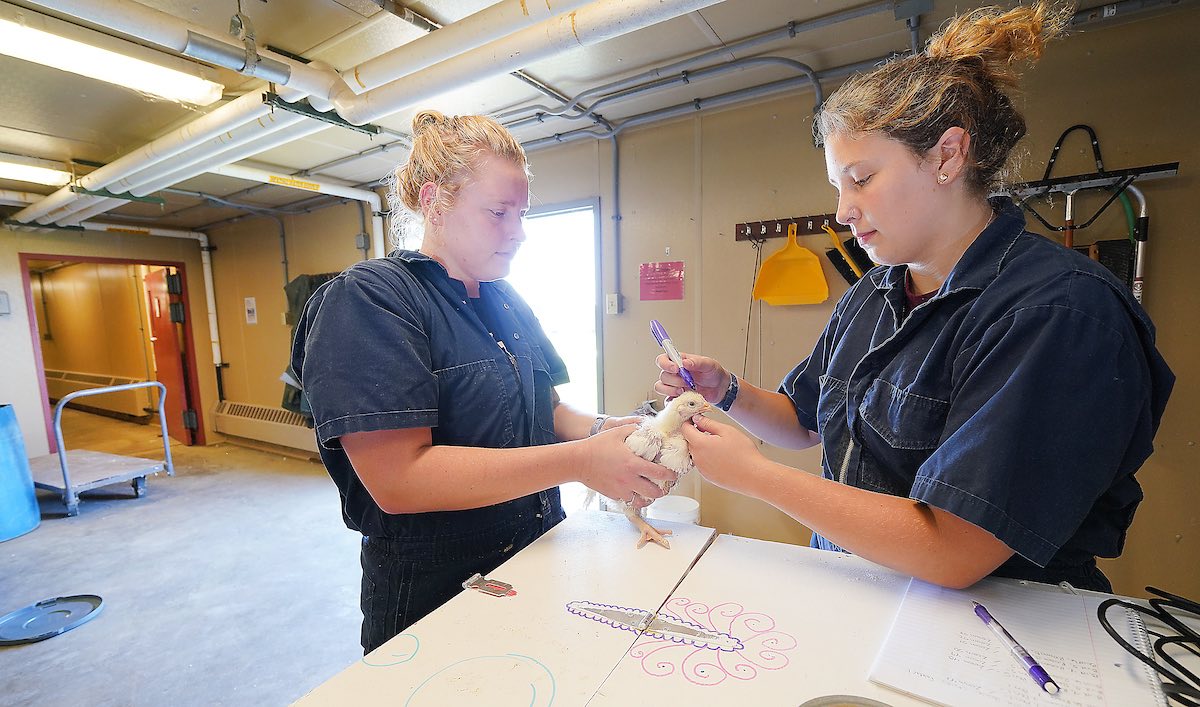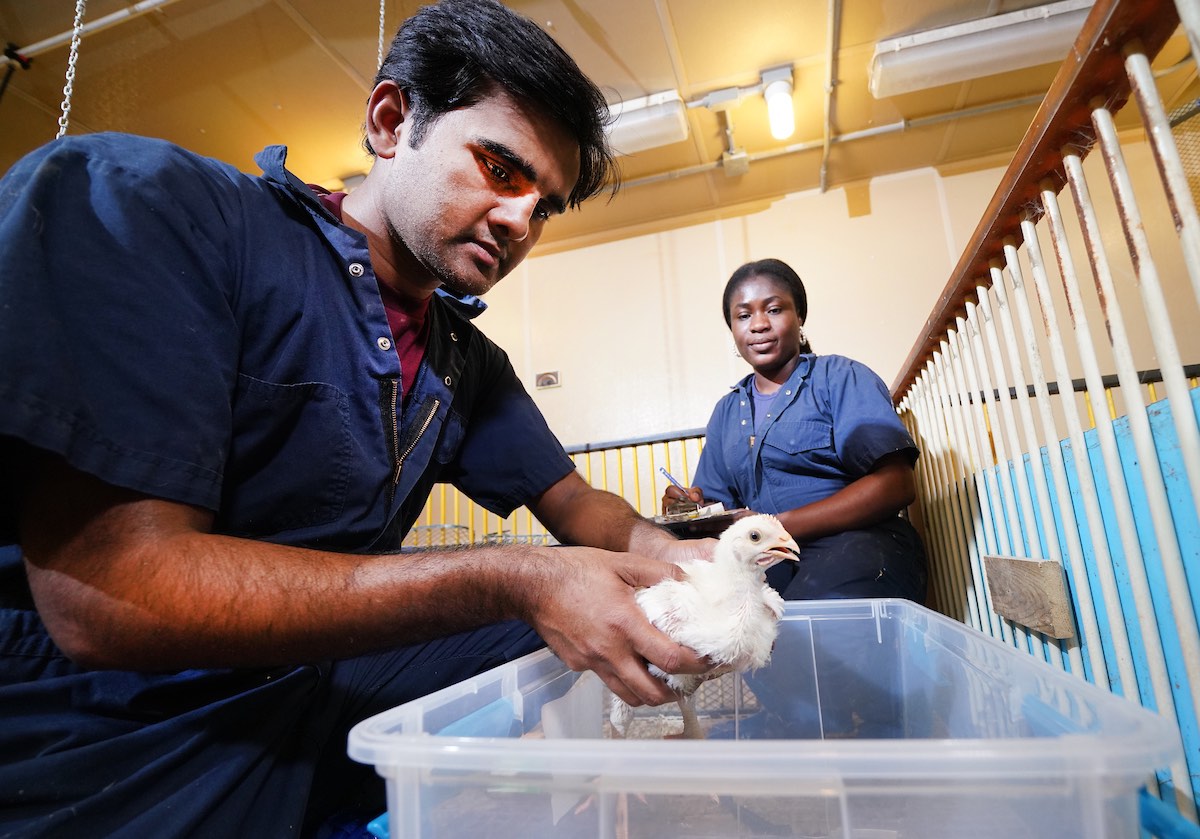Full ride scholarship allows Animal Sciences students to REACH for their dreams
To meet the demand for animal science graduates within Indiana’s poultry industry, Purdue’s College of Agriculture has created a program aiming to streamline career paths for interested students.
The REACH (Research, Engagement, Activity, Culture, Hen) Program is led by Elizabeth Karcher, associate professor of animal sciences, and team members Greg Fraley, Terry and Sandra Tucker Family Endowed Chair of Poultry Science; Pamala Morris, Associate Dean and Director of the Office of Multicultural Programs and professor of agricultural sciences education and communication; Luis Santiago, Purdue Extension educator in Daviess County; and James Wolff, Purdue Extension educator in Allen County.
The REACH Program will provide five incoming freshmen pursuing animal sciences degrees with a focus on poultry with eight semesters of full tuition as well as stipends for books, a paid internship, a fully funded 10-day study abroad program in the Netherlands, funding to attend a professional poultry science conference, annual tours of facilities within the poultry industry, and a mentoring program focused on inclusiveness and student success. If that sounds like a “golden ticket” experience, Karcher explained, that’s their goal.
 The REACH Program, funded through a USDA Multicultural Scholars Program, awards funding to different program applicants to give students a well-rounded university experience. In partnership with the Office of Multicultural Programs, Karcher said their program will support students as soon as they step foot onto campus.
The REACH Program, funded through a USDA Multicultural Scholars Program, awards funding to different program applicants to give students a well-rounded university experience. In partnership with the Office of Multicultural Programs, Karcher said their program will support students as soon as they step foot onto campus.
“Students will not only have access to faculty as a research team who will serve as mentors and advisors, but they will also find support in the Office of Multicultural Programs, which is working with us to build stronger mentoring programs,” Karcher said. “We want students to feel welcomed and supported early on, so while the fully funded tuition is a major benefit, we want it to go beyond that through experience.”
To be considered for the REACH program, students must be U.S. citizens or legal permanent residents and accepted into Purdue’s College of Agriculture with intent to study animal sciences. Preference will be given to individuals who demonstrate a commitment to increasing opportunities for underrepresented minority students. Applicants are encouraged to apply by the November 1st Early Action deadline, and to apply to the REACH Program through the College of Agriculture’s scholarship application.
Karcher said while she is eager to drive more interest in careers within the poultry industry, she knows the REACH Program has the potential to make a significant impact on students’ lives.
“This is a great opportunity to get to know these students really, really well and to support them in each step through their career here at Purdue,” she said. “I am hopeful that this program is going to reach a few high school students who see this and think, ‘Wow, this is a great opportunity that was meant for me,’ especially for students who are looking to make a global impact in the work they do.”
To learn more about scholarships within the College of Agriculture and applications, visit the College of Agriculture’s Scholarships webpage.







